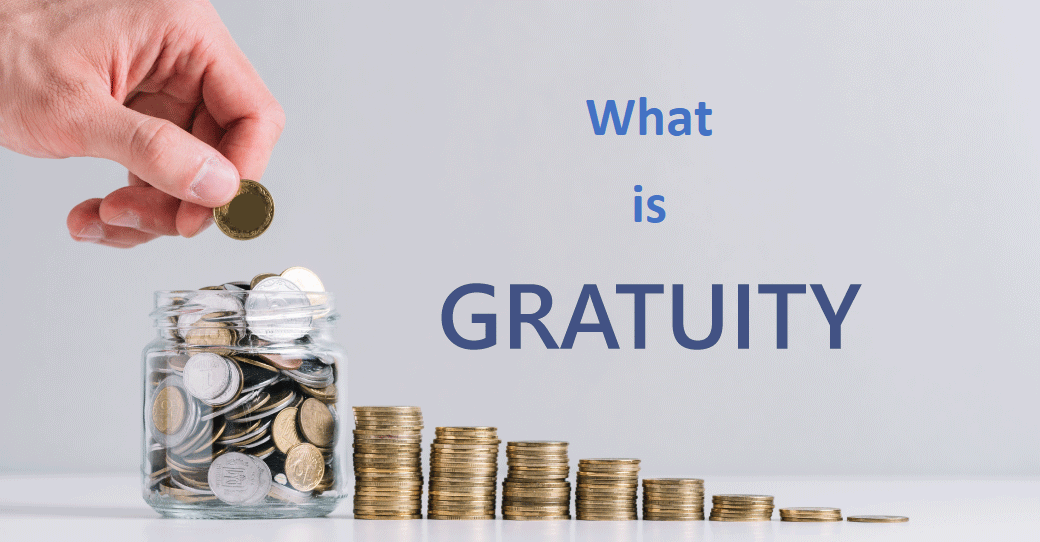What Is Gratuity, Calculation And Formula
What is gratuity?
Gratuity is the amount given to employees as a benefit for the services they provide. The provisions are compiled under the Gratuity Act, 1972. According to this, the employees are entitled to receive gratuity after completing 5 years of service with an organisation. It is given at the time of retirement, death, or resignation.
The maximum amount that can be paid as gratuity is Rs. 20 lakhs for employers covered under the Gratuity Act. However, the upper limit for those not covered is Rs. 10 lakh only. Any excess amount of gratuity is called ex-gratia.
There are certain more conditions to keep in mind for the same. Let us dive deeper into the details.
Who is eligible for receiving gratuity?
To be eligible to receive a gratuity, any of the following conditions must be met:
- You must be eligible for superannuation – you must be of the maximum age of service as determined by your organisation.
- You have retired from service.
- You have resigned after completing 5 years of continuous employment.
- You are the nominee of an employee who has died.
- You have been disabled due to an accident or sickness.
How is gratuity calculated?
For employers covered under the Gratuity Act, the simple formula used to calculate the amount is:
(Last drawn salary*15*Number of years worked) / 26
Let us break this down for you.
What comes under the last drawn salary?
Your last drawn salary, for this purpose, includes the basic salary plus dearness allowance. It also includes any commission received on sales, if applicable.
How to calculate the number of years?
You must round off the duration of your employment to the nearest year. Let us take an example. If you have worked for 7 years and 5 months, the number of years will be taken as 8. Similarly, if the duration is 7 years and 2 months, the number of years is taken as 7.
What happens in the case of employers not covered by the Gratuity Act?
Employers not covered under the Act may still pay gratuity. However, in this case, the calculation is slightly different. Gratuity is calculated based on the half-month salary of the employee. The formula will be adjusted to:
(Last salary drawn*15*number of years) / 30
Using an online calculator
If manually calculating gratuity feels like a task, hop on to the internet. You can ease the calculations by using an online calculator. All you have to do is put in the relevant details about your tenure and basic pay. The calculator determines the amount as per the latest rules.
How is the tax on gratuity treated?
For government employees
The entire amount of gratuity is exempt from tax for government employees. This includes everyone – whether employed with central, state or local authorities.
For non-government employees
For private-sector employees, gratuity is taxable. However, some relief is given. This depends on whether the employer is covered under the Gratuity Act or not.
If covered under the Gratuity Act
The minimum of the following amounts will be exempt:
- Rs. 20 lakh
- The actual sum of gratuity received
- Salary for half a month for each completed year (as calculated with the formula)
To simplify this, go through this example.
You have worked for 6 years with an organization. Your basic pay along with dearness allowance is Rs. 50,000.
According to the formula, the gratuity to be received will amount to: (50000*15*6)/26 = Rs. 1,73,077
However, your employer has decided to pay you Rs. 7,00,000 as gratuity. In this case, the amount calculated (Rs. 1,73,077) being the least, will be exempt. Tax is payable on the remaining amount, which is Rs. 5,26,923.
If not covered under the Gratuity Act
The minimum of the following amounts will be exempt:
- Rs. 10 lakh
- The actual sum of gratuity received
- Salary for half a month for each completed year (as calculated with the formula)
Take an example. Your salary is Rs. 50,000 and you have worked for 15 years with the organisation. Gratuity will be calculated as: (50000*15*15)/30 = Rs. 3,75,000.
Your employer decides to pay you Rs. 3,00,000 as gratuity. In this case, the exempted amount will be Rs. 3,00,000. Tax is payable on the remaining Rs. 75,000.
By when must you receive the gratuity?
Gratuity is only payable once 5 years are completed. You can submit an application with your organisation, asking for the gratuity due. However, the submission of an application is not necessary and will not affect your right to receive the amount.
The employer must release the amount within 30 days of receiving the application. If the amount is not transferred within this period, the employer is liable to pay simple interest for the number of days till the gratuity is paid.





























